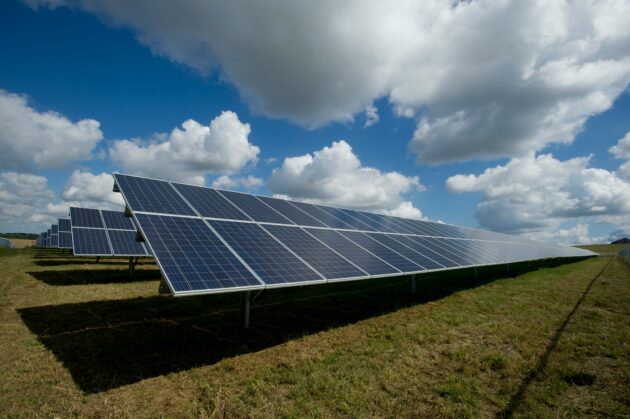The Impact of President Trump’s Executive Order on Clean Energy Funding
President Trump’s "Unleashing American Energy" executive order has caused confusion and concern among clean energy advocates and organizations. The order, signed on his first day in office, paused the distribution of funds allocated under the Inflation Reduction Act and the Bipartisan Infrastructure Law for at least 90 days. This move has left many unsure of what the future holds for clean energy projects and funding. David Funk, president of Zero Emissions Northwest, a nonprofit based in Spokane, Wash., is among those affected. His organization helps farmers and rural businesses secure funding for energy-efficient technologies, but over $250,000 in promised grants is now on hold. Funk has had to furlough his three employees, expressing frustration that the funding pause does not align with the administration’s goal of "making America great again." He sees only layoffs and economic hardship in the near future.
The Ripple Effects on Clean Energy Initiatives
The executive order has sent shockwaves through Washington state and beyond. A U.S. District Court judge has temporarily blocked the administration’s efforts to halt the flow of federal grants, loans, and other financial assistance. However, many resources for clean energy and climate efforts remain inaccessible. Sen. Patty Murray (D-Wash.) has criticized the Trump administration’s actions on the Senate floor, warning that continued funding freezes could lead to job losses and the cancellation of long-planned projects. The full extent of the impact is unclear, as some organizations struggle to get answers while others navigate the uncertainty quietly. There is also growing concern about the potential cancellation of billions of dollars in federal loans, adding another layer of financial uncertainty for businesses and nonprofits.
Navigating the New Funding Landscape
Organizations like Zero Emissions Northwest and the CleanTech Alliance are working to help their members and clients adapt to the new funding landscape. The CleanTech Alliance, a Seattle-based trade association, is advising its members on how to rewrite grant applications to avoid language related to diversity, equity, and inclusion (DEI), clean energy, and climate change—terms that appear to be out of favor with the new administration. The group is also directing startups to alternative funding sources, such as corporate programs and foundations. Mel Clark, president and CEO of the CleanTech Alliance, acknowledged that changes in federal funding priorities are expected with a new administration. However, the climate and energy tech sector is particularly vulnerable due to the high costs and long development timelines associated with hardware-based solutions. Delayed or canceled grants and loans could push some companies to the brink of collapse.
Federal Funding and the Role of Diversity, Equity, and Inclusion
One of the challenges posed by the funding freeze is the intertwining of federal and state dollars. Under President Biden’s policies and Washington state law, climate and energy grants required applicants to include benefits for underserved communities disproportionately affected by pollution and climate change. The Trump administration’s ban on DEI efforts has disrupted this synergy, leaving funding for many projects in limbo. CleanTech Alliance’s Mel Clark noted that the loss of "braided funding"—the combination of federal and state dollars—could further complicate efforts to move projects forward. Grant recipients are being advised to review the sources of their funding, as pass-through dollars from federal agencies could also be at risk.
Optimism and Uncertainty in the Clean Energy Sector
Despite the challenges, some clean energy sectors may continue to receive support under the Trump administration. Fusion energy, nuclear power, geothermal energy, and hydropower are among the technologies that have been mentioned as priorities. Helion Energy, a fusion energy company based in Everett, Wash., is one example of a business that appears to align with the administration’s interests. CEO David Kirtley expressed confidence in the company’s continued success, citing its long-standing partnership with the Department of Energy. Similarly, Group14, a next-gen battery company, has secured $200 million in federal funding for a new silane factory in Moses Lake, Wash. CEO Rick Luebbe emphasized the company’s successful history of working with the DOE, including during Trump’s first administration.
Looking Ahead
As the situation unfolds, organizations like Zero Emissions Northwest and the CleanTech Alliance are doing their best to navigate the uncertainty. David Funk, despite being stretched thin by the furlough of his employees, remains optimistic that the farmers and businesses his organization supports will eventually receive their funding. Many of these projects, such as a $540,000 grant for solar panels to power irrigation equipment, are seen as vital for rural communities and the broader transition to clean energy. While the road ahead is fraught with challenges, the resilience of the clean energy sector and the determination of its advocates offer a glimmer of hope. As the administration’s priorities become clearer, one thing is certain: the impact of this funding freeze will be felt for years to come.












